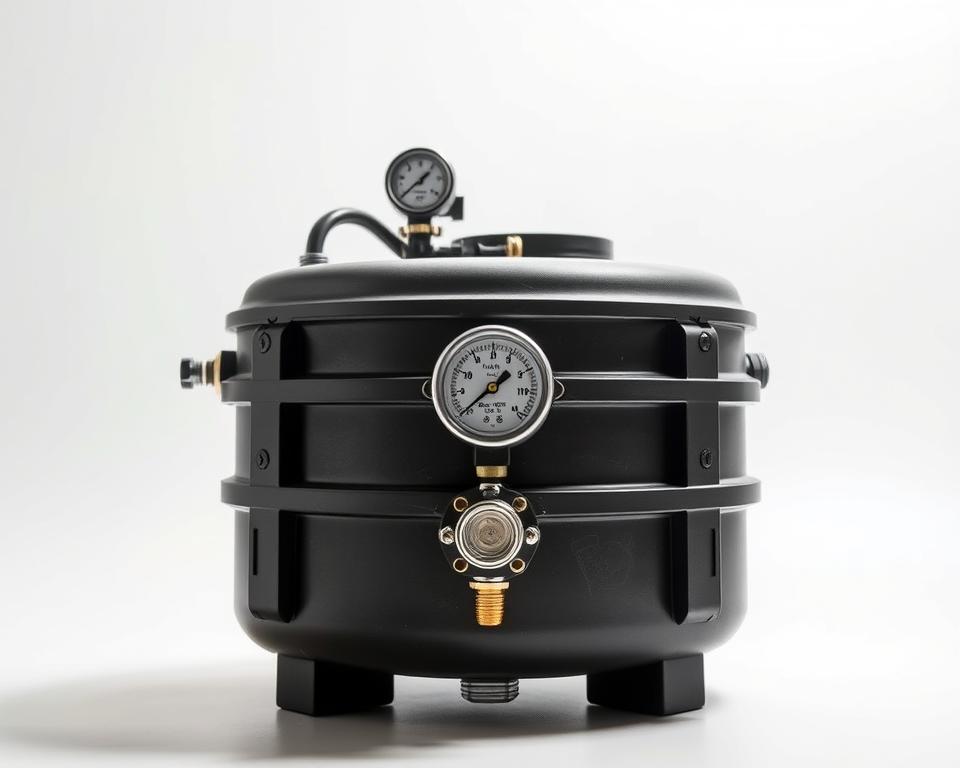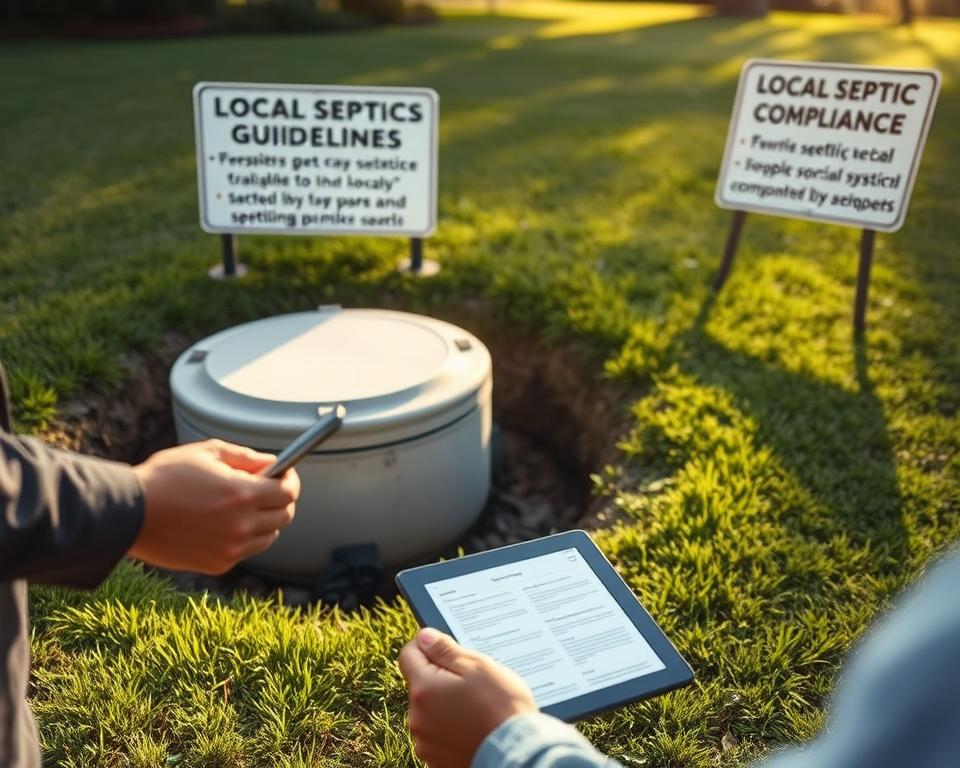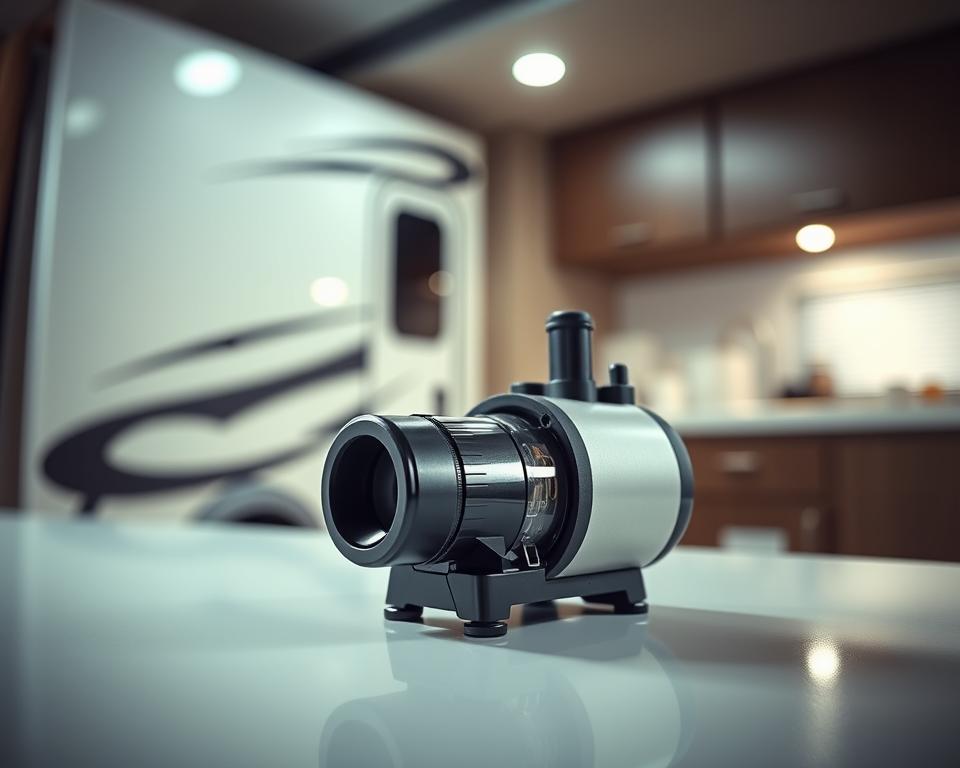RV Black-Water Pump: Key Care Tips
Are you sure your motorhome’s black water pump is up to the task, or could it spell campsite headaches? Preserving your motorhome’s waste system in excellent order is critical. It helps sidestep nasty scents, clogs, and pricey harm. We’ll share important advice to ensure your sewage pump operates without a hitch, keeping your travels serene.
Comprehending Your RV’s Plumbing System
The RV plumbing system is essential for any pleasant excursion. It splits into two main parts: the black water system and the gray water system – RV septic pumping service. The black water system collects waste from the toilet, while the gray water system handles wastewater from sinks and showers.
The systems use drain lines that feed into different tanks, designed for streamlined waste management. Each tank has a vent to avert gas from building up, guaranteeing the operation is safe and pleasant. Proper waste management in an RV is paramount to sidestep leaks or bad odors. By learning about both black and gray water tanks, RV owners can upkeep and manage waste better.
Knowing how your RV’s plumbing works allows early detection of issues early. Scheduled maintenance makes trips smoother for everyone. Staying ahead with your RV’s plumbing system guarantees reliability during your travels.
Types of Tanks
Traveling in RVs involves understanding the different tanks. Each one is vital to your RV’s performance, requiring regular upkeep.
The fresh water tank stores drinking water. It’s indispensable for a pleasant RV experience.
The gray water tank collects sink, shower, and other non-Septic wastewater. Overseeing this tank keeps your RV fresh while traveling. The black water tank, on the other hand, contains toilet waste. It needs routine emptying and careful maintenance to avoid issues.
By understanding the fresh, gray, and black water tanks, RV owners can optimally control their systems. This planning and steady maintenance secure smooth performance of the waste management system.
Operation of Black Water Tanks
The process of the black water tank is vital in RV waste management. It receives waste from the toilet via a gravity-fed system. Upon flushing, waste and water are channeled to the tank, to be stored until removal is necessary. It’s important to keep water levels optimized in the toilet to stop solid waste buildup.
Grasping how RV waste tanks function can circumvent clogs and odors. Without proper care, solid waste hardens, producing blockages and emptying difficulties. Effective tank flushing techniques are essential to preventing these issues, guaranteeing smooth functionality.
Consistent inspection of tank mechanics is advised for RV owners. This includes watching flushing methods and ensuring adequate water flow. Practicing these essentials supports efficient tank maintenance, heading off expensive fixes later.

Key Maintenance Tips for Your RV Black Water Pump
Carrying out regular maintenance on your RV’s black water pump is essential. Start by selecting RV-safe toilet paper to lessen clogs and boost flow. A complete flush can eliminate waste and cut bad smells. Consistently cleaning the tank helps prevent residue buildup, ensuring your RV hygienic and comfortable.
Conduct frequent inspections to examine your pump’s condition. Inspect for any signs of wear or damage that could hinder its function. Using specialized tank treatments, like those from All in Sanitation, can significantly improve both performance and cleanliness. Applying these tips can increase your pump’s life and improve your RV’s living conditions.
Opt for RV-Specific Tissue
Maintaining your RV’s black water system includes vital steps. One essential tip is using RV-safe toilet paper for clog prevention. This specialized product breaks down quickly in water, tailored for RV sanitation systems.
RV-safe toilet paper is crucial for tank maintenance. It dissolves fast, avoiding blockages from slow-decomposing materials. This betters waste disposal efficiency and keeps the plumbing free-flowing.
Select brands marked as RV-safe when buying toilet paper. These products lessen clog risks and boost your black water tank‘s lifespan by preventing buildup. Regular use secures a stress-free camping experience, absent plumbing troubles.
Thorough Tank Flushing
Rinsing completely your black water tank is vital for responsible waste management in your RV. To assist waste movement, make sure the toilet bowl is sufficiently watered before flushing. Many RVs are equipped with built-in tank flush systems to make the process more convenient. For RVs without this feature, using tank rinsers that attach to the sewer outlet offers a good alternative.
Regular tank flushing assists waste removal and wards off solid accumulations and bad smells. Adhering to this process secures your RV stays free of odors, making your travels more pleasant. A habit of regular and complete tank flushing will upgrade hygiene and the overall condition of your RV’s plumbing system.
Prevent Build-Up with Regular Cleaning
Holding your RV’s black water tank clear is vital for its peak function. Consistent cleaning washes away lingering waste inside the tank walls. This means washing well with water and using specific RV tank cleaners for tough deposits.
By cleaning regularly, you avoid odors and lessen clog risks. A clean tank makes RVing better and helps your plumbing last longer. Include tank maintenance into your routine to ensure smooth travels.
Choosing Proper Chemicals
Selecting appropriate chemicals for RV black water pump maintenance is key for managing waste and reducing smells. Many RV enthusiasts rely on enzyme-based RV holding tank treatments. These products feature good bacteria to break down solids and curb bad odors.
Steering clear of harsh chemicals is critical to prevent damage to your plumbing. Such substances can corrode pipes, leading to high repair bills and diminishing your RV enjoyment. Applying safe chemicals for odor control secures your tank and pump’s longevity.
Preserving your RV black water tank in prime shape enhances your travel experience. Using the right holding tank treatment regularly secures your system works well.
Proper Dumping Schedule
It’s essential to empty your RV’s black water tank at the appropriate point for smooth emptying. Plan to dump when the tank is about two-thirds full is smart. This prevents solid waste buildup, providing a quicker emptying process.
Emptying at authorized stations is imperative for safe, eco-friendly waste handling. It’s vital to watch the tank‘s levels closely. Letting it max out can cause clogs and make disposal more difficult.
Good timing with correct methods are essential for hygienic waste management and can extend your plumbing’s life. Staying vigilant and caring for the system well guarantees a pleasant RV living experience.
Seal Inspection and Upkeep
Checking seals around the toilet and tank is critical for leak prevention. Over time, these seals might break down, leading to odors and potential harm. A careful inspection will show any wear or damage. Finding issues early allows for quick replacement to ensure a secure connection and odor-free RV.
Keeping a bit of water in the toilet bowl assists in preserving seal condition. This safeguard is essential in RV seal upkeep. It lengthens the seals’ life, avoiding leaks and foul odors.
Consistent seal maintenance can prevent costly fixes later. By paying attention to seal health, RV owners secure a pleasant journey.
Long-Term Care Suggestions
Booking professional servicing for your RV at least once a year is wise, particularly for black water tank care. This strategy helps in spotting issues sooner and preserves your plumbing system’s integrity.
When setting your RV for storage, completely clean and empty the black water tank first. Consider antifreeze to protect from damage from remaining water during cold seasons. Following this practice is essential for preserving the system, guaranteeing it’s ready for your next adventure.
Routine checks and preventive actions are essential to extending your sanitation system’s life. Inspecting connections, hoses, and seals secures smooth operations. This method enhances your RV experience, making it enjoyable all year round.
Guaranteeing your RV’s black water pump is well-maintained is crucial for a stress-free camping journey. By adhering to the maintenance tips shared, you can keep your black water system working efficiently. It’s vital to focus on steady cleansing, utilizing correct flushing methods, and opting for appropriate chemicals for waste management.
By meeting these maintenance requirements, you will avoid unpleasant odors and blockages. This also extends your RV plumbing system’s durability. Proactive care of the RV black water pump yields more time enjoying the outdoors, minus potential setbacks.
Bear in mind, proper upkeep is key next time you gear up for an outing. It’s not the highlight of RV ownership, yet it significantly enhances your travel experience.


